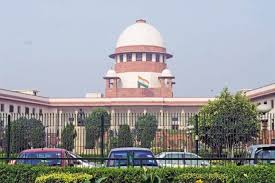Whether “tinted glass sheets” manufactured by the appellants is liable to be taxed as “goods or wares made of glass” under the Notification No.5784 dated 07.09.1981 being Entry No.IV or as unclassified item. (Para 1)
The assessing officer opined after enquiry that tinted glass has been manufactured by assessee in a separate unit and the process adopted for its manufacture is different from manufacture of sheet glass. Assessing Officer has further opined in his order that raw materials used in manufacture of tinted coloured glass are cobalt oxide, carbon oxide, iron oxide etc. besides those used in the manufacture of sheet glass. Assessing Officer has further held that the transparency and density of tinted coloured glass is different from the simple glass surface as also solar radiation on the absorption capacity of tinted coloured glass being more than that of the simple sheet glass. He further concludes in his assessment orders that in the ordinary and common parlance the tinted glass is not recognised or understood as sheet glass. (Para 3)
Hence, the assessing officer imposed tax @15% on the sale of the goods by holding that said goods cannot be included in the category of plain glass but under the category of “all goods and wares made of glass” as reflected in the Notification No.5784 dated 07.09.1981. The appeals filed against the said assessment orders came to be dismissed and the imposition of tax @15% came to be upheld. (Para 4)
In other words, the orders of the authorities came to be affirmed by the tribunal. The assessee pursued its grievance before the High Court by filing a revision petition contending that plain glass panes which are commercially known as sheet glass includes sheet glass both in tinted and non-tinted forms and the entry “plain glass panes” cannot be interpreted to exclude the tinted glass from its purview. The contention of the appellant that manufacturing of tinted/coloured glass is the same as that of uncoloured glass also did not find waiver by the tribunal. Hence, the revision application/petition came to be dismissed. (Para 4)
We are of the considered view that neither the dictionary meaning nor the common parlance theory would come to the rescue of the appellant. The arguments canvassed by the learned senior counsel with regard to flat transparent sheet glass as indicated in the Indian Standards Specification has also received the attention of the High Court and has been dealt with under the impugned order and distinguished it on facts in favour of the revenue, and rightly so, for the reasons indicated thereunder which we are of the considered view is in tune with the settled principles of law noted hereinabove and thereby impugned order does not call for our interference. (Para 29)
There is no vagueness in the notification dated 07.09.1981 and the entry No. 4 is clear and unambiguous namely it has brought within the sweep “all goods and wares made of glass” exigible to tax but not including “plain glass panes” and the exemption being the creation of the statute itself, it has to be construed strictly and even if there is any vagueness in the exemption clause must go to the benefit of the revenue. (Para 30)
SUPREME COURT OF INDIA
2023 STPL(Web) 327 SC
[2023 INSC 892]
M/S Triveni Glass Limited Rep. By Its Deputy General Manager (Sales And P.R.) Shri R.K. Sinha Vs. Commissioner Of Trade Tax, U.P.
Civil Appeal No. 3773 of 2011 with Civil Appeal No. 5914 of 2023 With Civil Appeal Nos.5965-5966 of 2023-Decided on 9-10-2023
https://stpllaw.in/wp-content/uploads/2023/10/2023-STPLWeb-327-SC.pdf







